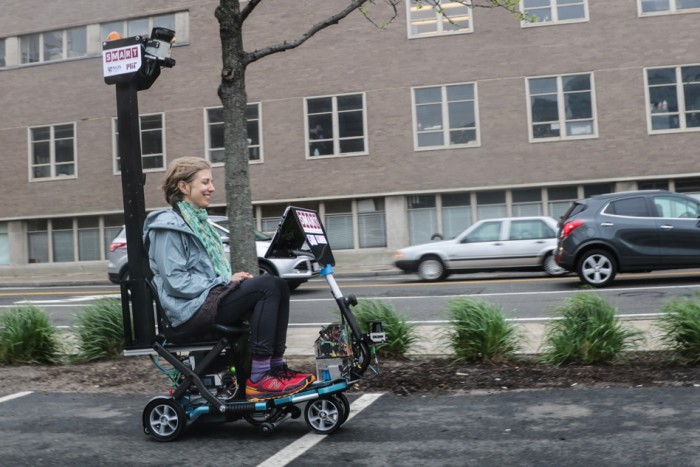
While scientists debate the ethical implications of self-driving cars, scientists in Singapore have personalised their latest advancements into transportation. According to TechXplore, Dr Marcelo Ang’s prototype can get users from A to B while dodging obstacles at around six kilometres per hour.
Created by researchers at MIT’s Computer Science and Artificial Intelligence Laboratory (CSAIL), the National University of Singapore, and the Singapore-MIT Alliance for Research and Technology (SMART), the autonomous mobility scooter is meant for phone-centric walkers who would rather sit while being transported short distances. It has, even more, beneficial applications for the disabled or mentally challenged.
“I'm sure you have experienced people who just use their handphone while walking, and almost run into you ... so it would be nice if you are just sitting down and checking your emails. We just give you more choices,” Ang was quoted as saying.
At the moment, the scooter weighs 50 kilogrammes and the only problem scientists envision is getting it to reroute faster after discovering an obstacle. Currently, it’s laser sensors allow it to slow down or move when it detects an obstacle but it takes a few seconds to get the job done.
Ang hopes to eventually commercialise a fully customisable version of the project but for now, it’s not for sale.






